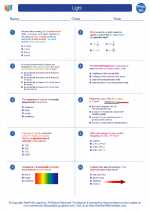Hydrogen Bonding
Hydrogen bonding is a type of intermolecular force that occurs when a hydrogen atom is bonded to a highly electronegative atom, such as oxygen, nitrogen, or fluorine. The hydrogen bond is a strong dipole-dipole interaction that occurs between the positive end of the hydrogen atom and the negative end of the electronegative atom.
Key Concepts:
- Hydrogen Bond Formation: Hydrogen bonding occurs when a hydrogen atom is attracted to an electronegative atom, such as oxygen, nitrogen, or fluorine, in a neighboring molecule.
- Strength of Hydrogen Bonds: Hydrogen bonds are stronger than typical dipole-dipole interactions but weaker than covalent or ionic bonds.
- Effect on Physical Properties: Hydrogen bonding influences several physical properties of compounds, including boiling and melting points, solubility, and viscosity.
- Examples of Hydrogen Bonding: Common examples of hydrogen bonding include the interactions between water molecules and the bonding in biological molecules such as DNA and proteins.
Study Guide:
To understand hydrogen bonding, it's essential to grasp the following concepts:
- Electronegativity and its role in hydrogen bonding
- How hydrogen bonding affects the physical properties of compounds
- Real-life examples of hydrogen bonding in various substances
- Comparison of the strength of hydrogen bonds with other types of chemical bonds
Additionally, it can be helpful to practice identifying and drawing hydrogen bonding interactions in chemical structures and understanding the impact of hydrogen bonding on the behavior of substances in different environments.
Mastering these concepts will provide a solid foundation for understanding the role and significance of hydrogen bonding in various chemical and biological systems.
.


